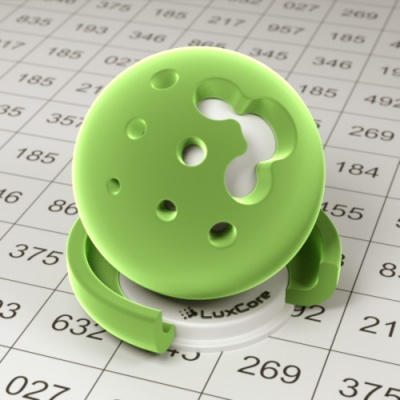Difference between revisions of "LuxCoreRender Materials Velvet"
Jump to navigation
Jump to search
m |
|||
| Line 2: | Line 2: | ||
The Velvet material represents a | The Velvet material represents a fuzzy, velvety surface. It works well for velvet and other types of cloth. Its appearance can vary wildly with lighting conditions, so you may find it easier to use in a mix with another material such as glossy or cloth. | ||
== Options == | == Options == | ||
| Line 14: | Line 14: | ||
These are three polynomials that define the appearance of the fuzz. They are rather abstract, so its best to just play around until you get a good result. | These are three polynomials that define the appearance of the fuzz. They are rather abstract, so its best to just play around until you get a good result. | ||
Back to [[LuxCoreRender_Materials|Materials]] | |||
Latest revision as of 21:13, 18 December 2017
The Velvet material represents a fuzzy, velvety surface. It works well for velvet and other types of cloth. Its appearance can vary wildly with lighting conditions, so you may find it easier to use in a mix with another material such as glossy or cloth.
Options
Thickness
This defines the thickness of the "fuzz" along the surface. Higher values will give a more pronounced fuzzy-look.
p1, p2, p3
These are three polynomials that define the appearance of the fuzz. They are rather abstract, so its best to just play around until you get a good result.
Back to Materials
